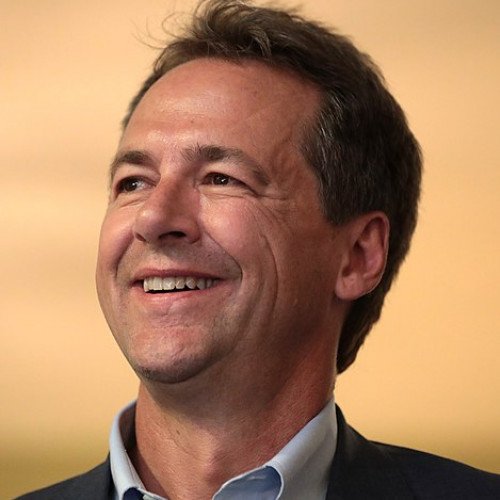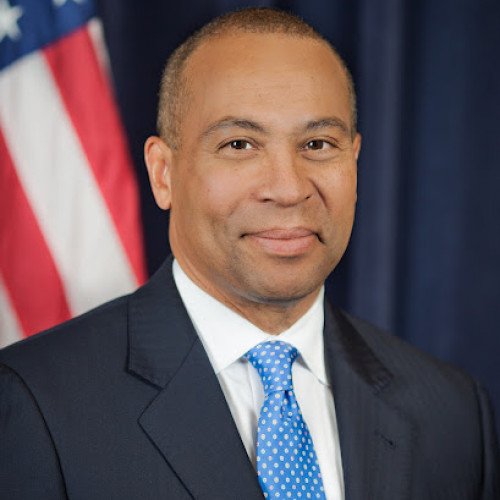Steve Bullock VS Deval Patrick

Steve Bullock
Stephen Clark Bullock (born April 11, 1966) is an American politician and lawyer, who served as the 24th governor of Montana from 2013 to 2021. He is a member of the Democratic Party. Born in Missoula, Montana, Bullock graduated from Claremont McKenna College and Columbia Law School. He began his career working as legal counsel to the Secretary of State of Montana before becoming the Executive Assistant Attorney General and acting Chief Deputy Attorney General of Montana. Bullock then entered private practice as a lawyer for Steptoe & Johnson. He was an adjunct professor at George Washington University Law School before opening his own law firm upon returning to Montana. In 2008, Bullock was elected Attorney General of Montana, and he served one term from 2009 to 2013. Bullock declared his candidacy for governor of Montana on September 7, 2011. The seat was open in 2012, as incumbent governor Brian Schweitzer, a Democrat, could not seek reelection due to term limits. Bullock won the Democratic primary with 87% of the vote and defeated Republican former Congressman Rick Hill in the general election with 48.9% of the vote. In 2016, Bullock was reelected with 50.2% of the vote, defeating Republican nominee Greg Gianforte. Bullock chaired the National Governors Association from 2018 to 2019. He was a Democratic candidate for President of the United States in 2020. After suspending his presidential campaign, he announced his candidacy for the United States Senate in the 2020 election. On November 3, Bullock lost to incumbent Senator Steve Daines.
Statistics for this Xoptio

Deval Patrick
Deval Laurdine Patrick (born July 31, 1956) is an American politician, civil rights lawyer, author, and businessman who served as the 71st governor of Massachusetts from 2007 to 2015. He was first elected in 2006, succeeding Mitt Romney, who chose not to run for reelection to focus on his presidential campaign. He was reelected in 2010. He was the first African American Governor of Massachusetts. A Democrat, Patrick served from 1994 to 1997 as the United States Assistant Attorney General for the Civil Rights Division under President Bill Clinton. He was briefly a candidate for President of the United States in the 2020 U.S. presidential election. Raised largely by a single mother on the South Side of Chicago, Patrick earned a scholarship to Milton Academy in Milton, Massachusetts in the eighth grade. He went on to attend Harvard College and Harvard Law School, where he was president of the Harvard Legal Aid Bureau. After graduating, he practiced law with the NAACP Legal Defense and Educational Fund and later joined a Boston law firm, where he was named a partner at age 34. In 1994, Bill Clinton appointed him as the United States assistant attorney general for the civil rights division of the United States Department of Justice, where he worked on issues including racial profiling and police misconduct. During his governorship, Patrick oversaw the implementation of the state's 2006 health care reform program which had been enacted under Mitt Romney, increased funding to education and life sciences, won a federal Race to the Top education grant, passed an overhaul of governance of the state transportation function, signing a law to create the Massachusetts Department of Transportation, increased the state sales tax from 5% to 6.25%, raised the state's minimum wage from $8 per hour to $11 by 2017, and planned the introduction of casinos to the state. Under Patrick, Massachusetts joined the Regional Greenhouse Gas Initiative (RGGI) in an effort to reduce greenhouse gas emissions. Shortly after Patrick's second term began on January 6, 2011, he declared he would not seek re-election in 2014.Patrick is a managing director at Bain Capital and serves as the chairman of the board for Our Generation Speaks, a fellowship program and startup incubator whose mission is to bring together young Israeli and Palestinian leaders through entrepreneurship. He also holds a Board of Directors position at telehealth company American Well.Members of his own inner circle and Barack Obama's inner circle encouraged Patrick to run for president in 2020, but Patrick ruled out a 2020 presidential bid in December 2018. In November 2019, however, uneasy about the existing field of Democratic candidates, Patrick was reported to have called a few leading Democrats and allies to say that he would soon announce a 2020 presidential bid. He formally entered the race on November 14, 2019. He ended his campaign on February 12, 2020, following a very poor showing in the Iowa caucus and the New Hampshire primary.